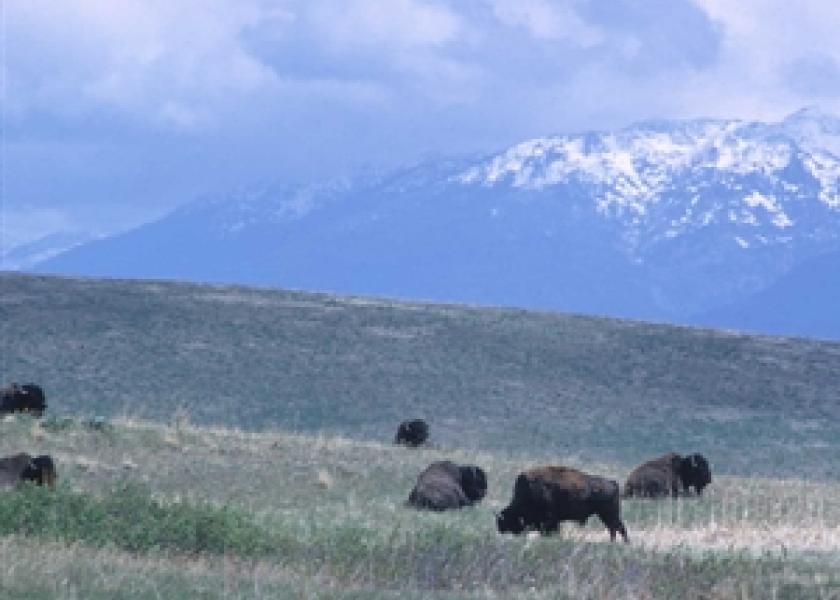Yellowstone says "Biobullets" for Bison Won't Work

By: Matthew Brown, Associated Press
Shooting wild bison with vaccine-laced "biobullets" to prevent the spread of disease to livestock would be too ineffective to justify the expense, Yellowstone National Park administrators said Tuesday.
The announcement means a program that has led to the capture and slaughter of more than 2,300 bison that migrated into Montana over the last decade will continue — with little immediate hope of eradicating the disease that's to blame.
About half of the 4,600 bison tested positive for exposure to brucellosis. The disease is feared by ranchers because it can cause pregnant cows to prematurely abort their young.
Other measures also are used to control Yellowstone's burgeoning bison herd, including hunting and using helicopters and ATVs to drive the animals back into the park. That has had little or no impact on infection rates, and with the backing of livestock interests, park officials in 2010 proposed shooting bison with absorbable, vaccine-laced bullets to prevent transmissions to cattle.
But park officials made clear Tuesday that they have lost interest in spending $9 million over three decades on an effort they concluded would yield minimal results.
"We don't think it makes any sense to spend millions of taxpayer dollars and invest 30 years of effort in hopes of a small reduction in the prevalence of bison," Yellowstone superintendent Dan Wenk said. A final decision will be made after a 30-day public review period.
Yellowstone's chief scientist, David Hallac said the government will continue "opportunistic" vaccinations of some captured bison using syringes. Only a small percentage of bison captured by state and federal workers in past years have been vaccinated.
Montana Stockgrowers Association Vice President Errol Rice said he is disappointed the park was unwilling to put more resources toward combatting brucellosis in wildlife.
Rice said the livestock industry has done its part, agreeing to mandatory testing and vaccinations of cattle in areas of Montana, Wyoming and Idaho surrounding the 2.6 million-acre park.
"It's been costly for (cattle) producers," he said. "It just makes doing business in this part of the world much harder."
Brucellosis was first introduced to the Yellowstone area by infected cattle. It has been largely eradicated elsewhere in the country but persists in Yellowstone's wildlife.
Hallac pointed out that diseased elk, not bison, have been blamed for cattle infections. Those include 19 cows and 14 domestic bison that tested positive in Montana since 2007, in some cases triggering trade sanctions from other states.
Tuesday's announcement was in line with a report delivered last year by a panel of researchers and university scientists asked by the government to examine the feasibility of remotely vaccinating bison.
Besides concerns over the cost and effectiveness, the group warned of possible "behavioral" changes for bison herds targeted for vaccinations.
Panelist and bison expert Keith Aune with the Wildlife Conservation Society said existing policies to contain the spread of brucellosis have worked "pretty darned good" given the complexities of dealing with thousands of animals inhabiting a multimillion-acre landscape.
But the park has struggled to address the public-perception problem created by periodic slaughters of the animals by state and federal workers. The slaughters are triggered by mass movements of the animals outside the park during hard winters, when the vegetation they eat gets covered by an impenetrable crust of snow and ice.
Despite attempts Montana officials to expand the habitat of bison, Aune said there's no way to control that migration as the herd grows.
"Sooner or later, the numbers and demographics of this population will drive another large outmigration, which will lead to some very difficult decision about how many to send to slaughter," he said.







